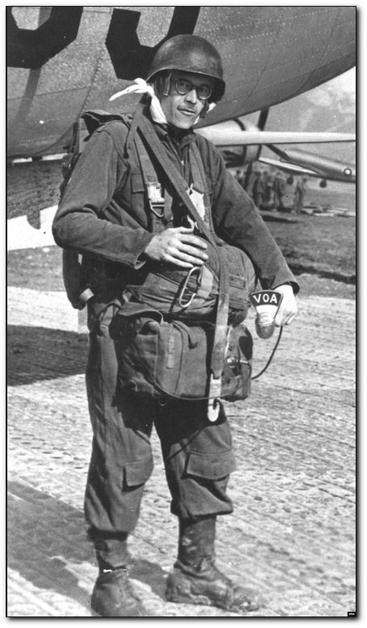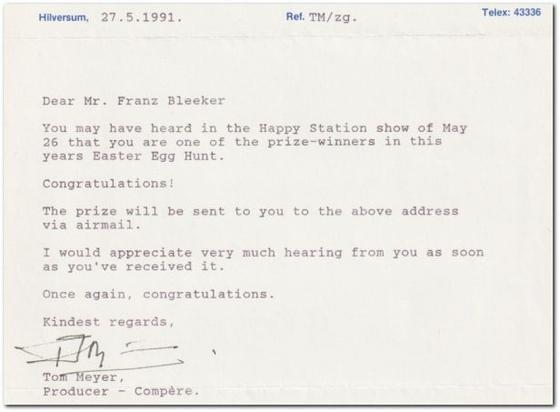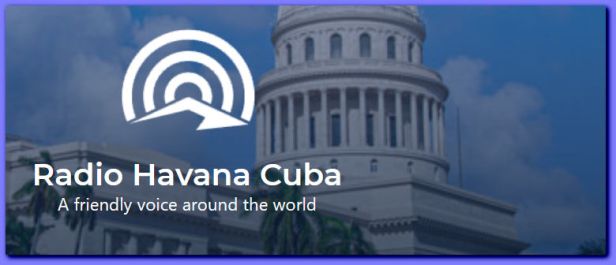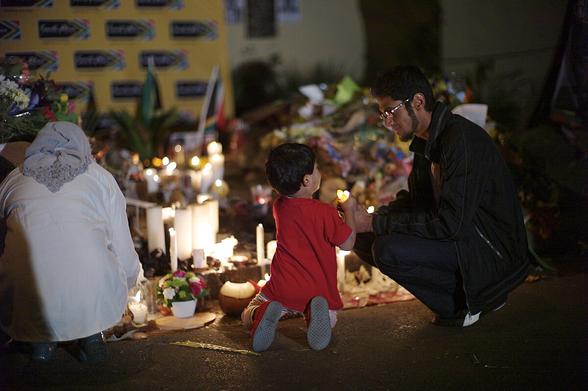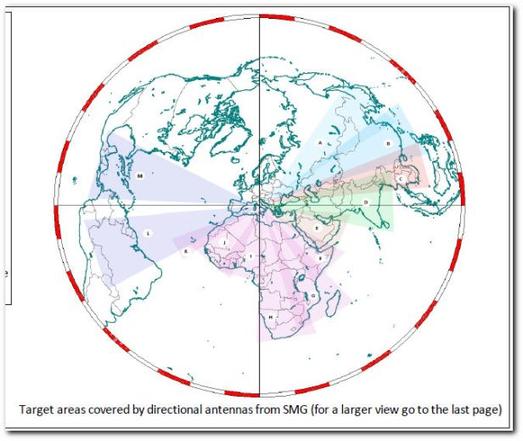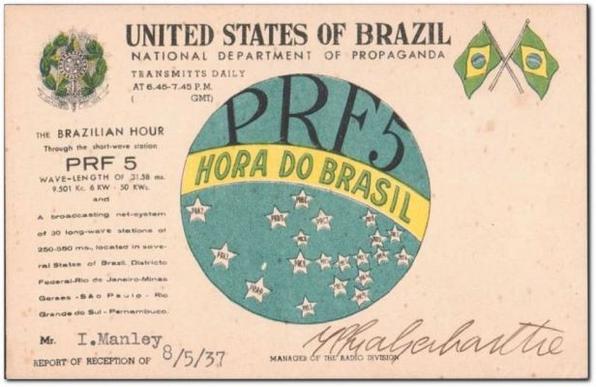A Story of Radio RSA (1): „That will be our Image“
This is the first of a few blogs on „Radio RSA, the Voice of South Africa“.
Radio RSA was the foreign radio section of the South African Broadcasting Corporation (SABC). The SABC had been founded in 1936, before the second world war and before the political advocates of apartheid had come to power in 1948.
The station went into operation in May 1966. According to Wavescan, the SABC had previously "procured a tract of land containing 1250 acres south of Johannesburg in a hilly country area due east of the town of Meyerton" in 1964.
Apartheid had become practice in South Africa in 1948. It soon became an elaborate system of discriminatory rules, and those probably led to conflict from day one.
The Sharpeville massacre on March 21 1960 is said to have been a turning point in the international perception of South Africa. A number of resolutions concerning apartheid had been passed by the UN General Assembly before, but this time, the UN Security Council actually passed a resolution, number 134,
"Recognizing that such a situation has been brought about by the racial policies of the Government of the Union of South Africa and the continued disregard by that Government of the resolutions of the General Assembly calling upon it to revise its policies and bring them into conformity with its obligations and responsibilities under the Charter of the United Nations."
Most white South African voters – the only voters anyway – weren’t prepared to go along with that, and in a further move into isolation, in a referendum, all provinces except Natal voted to turn the Union of South Africa into a Republic of South Africa. All votes cast at the time were "white", of course. That in turn led to an end to South Africa’s Commonwealth membership, and the Commonwealth didn’t approve South Africa’s application for re-entry, as described here by British prime minister McMillan.
But while evolving into a pariah politically, South Africa recovered and expanded economically1). Therefore, there was still a lot at stake for the country. Task one: convincing the West that South Africa "was particularly important to the Soviet Union due to its location and, therefore, worthy of its support". Task two: reminding the West "that 71% of their gold production came from South Africa." Eugene Fortein, in a paper published in 2023, and quoting a third source (page 6), establishes a link between the two tasks spelled out above, and shortwave radio. The mission was stated in a parliamentary debate on May 20, 1965 (or May 21 according to another source), by a National Party MP:
"The content of those broadcasts will be directed positively at the outside world. It will not be positive propaganda because it is of no avail to try to refute propaganda with propaganda. The SABC will give a positive picture of South Africa as a civilized country …
We shall make the outside world acquainted in a positive way with the fact that we are not, for example, a police state; that we are not, for example, still living in the dark ages … (and) that there is no slavery here and thatone can worship God here in South Africa …
We shall give the world a positive picture of the fact that we in South Africa are a civilized and highly developed nation. That will be our image …"2)
At the time when parliament approved the establishment of Radio RSA, there seems to have been only one 20-kW shortwave transmitter.3) That one was to be replaced by a transmitter site with four 250-kW transmitters. South Africa’s prime minister Verwoerd inaugurated the site personally. Only one of the four transmitters was ready to go on air at the time, but the three others followed within months, probably before Radio RSA officially went on air in May 1966.
Radio RSA’s German service started in March May 1967. English and French services were a constant through the broadcaster’s history from 1966 to the end in about 1992, both for the African continent and for Western countries, and Africa was always a top target area, ahead of the rest of the world. Ake Magnusson, a lecturer at Gothenburg University at the time, published a small book in 1976, and one of the things he focused on there was in which global regions Pretoria hoped to hold sway over public opinion by radio.
Western, and arguably even more so African, countries would be the main target areas for Radio RSA during the decades that followed.
What I want to find out is if Radio RSA was a real success for South Africa’s government. That depends on the criteria you define, of course – it almost certainly didn’t backfire against Pretoria.
But these will be considerations for another blog.
_______________
Notes
1) Eugene Andre Fortein (page 6) quoting Lamola, M. J. 2021. Sowing In Tears. A Documentary History of the Church Struggle against Apartheid 1960–1990
2) Ake Magnusson, „The Voice of South Africa“, Uppsala 1976, page 18
3)Magnusson, ibid.
–
–
#broadcasting #Europe #foreignRadio #RadioRSA #shortwave #SouthAfrica
